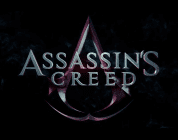I started playing Assassin’s Creed Revelations with the plan to spend a good 10-15 minutes once I arrived in Constantinople free running around, familiarizing myself with the city, and refamiliarizing myself with the mechanics so that I could be sure that I kept my motion fluid and that I knew where my escape routes were. George Takei’s signature “Oh Myyyyy…” suddenly burst forth from my phone, heralding a text message, and I realized that my 10-15 minute plan had turned into a three hour spree of guard killing and free roaming. Whoops.
Assassin’s Creed Revelations does not make any major detours from the tried and true gameplay mechanics and feel of the previous games in the series. Some people find this to be too repetitive, and criticize the game’s lack of innovation or new ideas from one iteration to the next. These are the same people, however, that endlessly praise series like Call of Duty or the EA Sports franchises, so take their inconsistent criticism with a grain of salt. Assassin’s Creed Revelations shows that the wonderfully versatile and entertaining Assassin’s Creed II engine still has a few tricks left up its sleeve. The success of the series is that in each iteration, the classic gameplay is enhanced by new elements and improved graphics, and in this way. Revelations definitely follows the pattern.
The game is beautiful. This has never been an aspect of the series in which criticism could take hold, and that hasn’t changed with the final entry in the Assassin’s Creed II story. The cutscenes are spectacular, the character models are detailed and smoothly animated, and Constantinople is as stunning in Revelations as Rome was in Brotherhood. The magnificently busy squalor of the Ottoman Empire is very well represented by their recreation of Constantine’s city. The rest of the game’s environments are also very well created/recreated. Cappadocio’s underground city is dark and dank, while Masyaf is an almost stone for stone recreation of the ancient citadel of the Assassins from the original Assassin’s Creed.
Speaking of the original Assassin’s Creed, Revelations does an absolutely wonderful job of tying up the stories Altaïr Ibn-La’Ahad and Ezio Auditore da Firenze (or as Yusuf says it at their first meeting, Ezio Auditore da lah lah lah). Altaïr, who spent most of the first Assassin’s Creed acting like a petulant jerk, is greatly humanized as you relive events in his life that occur long after the events of Assassin’s Creed. You come to understand how he became revered as one of the greatest of the Assassins, and it was a great way to tie him in to Ezio. Ezio finds fulfillment and satisfaction in his life, and brings his adventures to a close. Through the Desmond memories, you finally get a strong history of Desmond’s origins and life decisions leading to his capture by Abstergo. As the main character of the series, this was long overdue, and very informative. Finally, it seems that Subject 16’s story comes to an end as well. Overall, the multiple threads of the Assassin’s Creed universe, starting with the first game and all the way through the events of Revelations, have been very neatly tied together, with a strong opening for the upcoming installment.
Revelations also introduces multiple new gameplay elements, from something as simple as new weapons and accessories (bombs and hookblade) to new dynamics in the assassin missions and in tower control within the city. The bomb crafting system is very strong, and allows for a large variety of bombs with different purposes and results. From being able to create a timed sticky bomb that distributes a large amount of fake coins to draw massive crowds, to an on-contact explosive filled with shrapnel to eliminate groups of guards, to smoke bombs that would make Batman envious, Revelations has introduced a new combat and stealth mechanic with great success. I found myself using bombs quite often to either distract, obfuscate, or damage any who stood in my way.
The Mediterranean Defense method of sending assassins on missions and leveling them up has become a sort of real time strategy game. While you are perfectly capable of simply sending assassins out for experience, without worrying about the bigger picture of wresting control of major cities away from Templars, a fleshed out strategy game has been included within Revelations that is likely to cause you great distraction. A selection of a dozen or more cities is available, and each city contains various missions, just as in Brotherhood. The change is that each Revelations mission reduces Templar control of that city by a certain percentage. Once you’ve reduced their control significantly, you are able to reclaim the city into Assassin control. This provides you with items and cash on a regular basis. The Templars, however, are constantly attempting to reduce your influence in captured cities and want nothing more than to reclaim what they think is theirs, so there is a constant power struggle with shifting influence across the land.
Replacing Brotherhood’s Borgia Towers are Revelations’ Templar Dens. Templar Dens are Assassin Dens that the Templars have captured. They act in much the same way as a Borgia Tower, with a restricted area of influence that you must penetrate, and a Templar captain that you must kill. Once the Templar captain is killed, and the tower signal is lighted, the den reverts to Assassin hands, and the shops under its control can be renovated. So far, there’s not really any difference between a Den and a Borgia Tower. The difference comes from infamy. If you become infamous enough, and draw enough Templar suspicion, your reclaimed Dens can come under Templar attack. This launches a tower defense style mini-game that has you placing barriers, assassins, and more in the path of oncoming Templars, determined to recapture the Den they so embarrassingly lost. The tower defense mechanic can get difficult, and it can also become very time consuming when you have multiple Dens under attack.
My recommendation is to leave both the Mediterranean Defense and the Assassin Den defense until after you have completed the campaign, because it becomes far too time consuming to allow you to fluidly pursue the goals of the campaign.
The strangest addition to Revelations comes in the form of the Desmond memories. Attempting to rebuild his mind within the Animus presents Desmond with his own memories to play through, non-corporeally. These five missions are first person, with gameplay very reminiscent of the Portal series. It is during these puzzle missions that a great deal of Desmond’s history is revealed as retrospection and recollection. While it was originally an offputting change of pace from the third person agility and adventure of the rest of the game, I found myself eagerly awaiting the unlocking of the next Desmond memory.
With some new gameplay modes and mechanics, Revelations’ multiplayer offering is better than we saw in Brotherhood. If you liked the multiplayer in Brotherhood, you will like the multiplayer in Revelations. If not, don’t expect Revelations to change your mind on that point.
I’m very glad that Assassin’s Creed II (and, in away, the first Assassin’s Creed) is coming to a close. The three game story, starting in Assassin’s Creed II, continuing in Assassin’s Creed Brotherhood, and now coming to a close in Assassin’s Creed Revelations, has provided me with one of the more entertaining game trilogies in recent memory. I’m also very glad, however, that this is not the end of Desmond’s story and of my adventures in the Assassin’s Creed universe. If you haven’t played any of the Assassin’s Creed games, this is not the place to start. The story is very contiguous, and you will be faced with a lot of plot confusion if you don’t start from the beginning. But hey, it’s worth going through the previous three games to get to this one. Ubisoft tells a hell of a story.
Review
| Pros | Cons |
|---|---|
| Improved graphics New gameplay elements Wonderful character conclusions | Occasional unintuitive control issue from past games returns |
| Rating |



